May 25, 2025
I had a dream last night. It was a wooden rustic toilet in the middle of a forest. I felt a lot of peace, safety, spaciousness, heldness. There was sunlight poking through the canopy of trees. Tree branches surrounding me. A perfect weather day. I sat down to poop, but I couldn’t. It was like I was constipated.
I’m afraid to release something, I think. I’m so protected, held, and guided. There’s so much patience, enoughness, safety to let go. I feel disappointed and frustrated with myself. However, Nature is fine. Not bothered at all, it’s like she’s offering everything I could need to release. And patiently waiting. Knowing the rest is up to me…It’s up to me. Which part is scared?
For the last several months, I’ve been working more consistently with the Internal Family Systems (IFS) model, developed by Dr. Richard C. Schwartz. Schwartz writes in his book, No Bad Parts: Healing Trauma & Restoring Wholeness with The Internal Family Systems Model:
At it’s core, IFS is a loving way of relating internally (to your parts) and externally (to the people in your life)…IFS operates from the radically different assumption that each part—no matter how demonic seeming—has a secret, painful history to share of how it was forced into its role and came to carry burdens it doesn’t like that continue to drive it. This also implies clear steps for helping these parts and the people they are in to heal and change. It brings hope to the hopeless.1
In Hospicing Modernity, Vanessa Andreotti writes about a methodology called, “The bus within us,” which was created to disrupt modernity’s attempts to tame our inherent multidimensional expressions and perspectives, while homogenizing and standardizing a specific worldview and quality of personhood to serve modernity’s agenda of engineering society for conquest.
The bus methodology invites us to see a whole bus of people within us. At its most basic level, this bus has a drive and many passengers who embody what has marked one’s lifetime, including childhood events, unprocessed traumas, significant others, etc…The basic premise of the methodology is that if we cannot hold space for the complexities within us, there is no chance for us to hold space for the complexities around us.2
I engage with both IFS and the bus the same way:
Which parts or passengers are activated at the moment, and how can I make space for them to feel seen and heard, and to attune to their needs?
In other words, I am slowing down to re-member and honor the complexities within myself, rather than reacting from my conditioning to shame and/or abandon parts for the pursuit of “belonging” to a restrictive and punitive system (personal, interpersonal, and/or systemic) manufactured to serve certainty, perfection, supremacy, and control.
So, when this dream appeared to be back in May, I checked in on my parts to ask, “Which part is scared?”
I carried on a dialogue with this part:
This goes on for another three full pages (scroll to bottom of this post to see them).
Dreamwork combined with IFS is essentially community dreamwork with my parts! Fostering my relationship with my dreams has opened doorways to fostering my relationship to my parts, ultimately healing me towards wholeness and authentic belonging. While I am still living my day-to-day within modernity’s structures and systems, I am also living my ways towards liberation within myself.
We pick up the orphaned and abandoned pieces of soul life and realize that they, too, are worthy of love.
- Francis Weller, The Wild Edge of Sorry: Rituals of Renewal and the Sacred Work of Grief
And when I am in right relationship to my parts, I am in right relationship to my wholeness, which then organically extends into realizing right relationship in the interpersonal and systemic dimensions, as well. Schwartz writes about this interrelated dynamic in No Bad Parts, Chapter 4: More on Systems. In addition to The Bus methodology, Andreotti shares six other tools for disrupting our colonial conditionings in Hospicing Modernity, Prep Work 3: The Most Important Chapter.
Image from the Global Jams Learning Community: A foundational element in Jams is that the personal, interpersonal, and systemic are interconnected. I have written about Jams here and here.
Coming home to myself by engaging in dreamwork combined with IFS has been a powerful way to practice hospicing modernity in a tangible and accessible way.
Below are the remaining pages of my dialogue with my resistant part:
No Bad parts, pp. 4, 21
Hospicing Modernity, p. 48

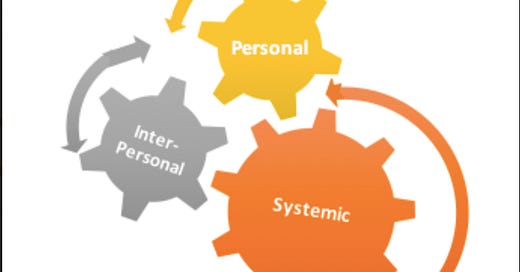


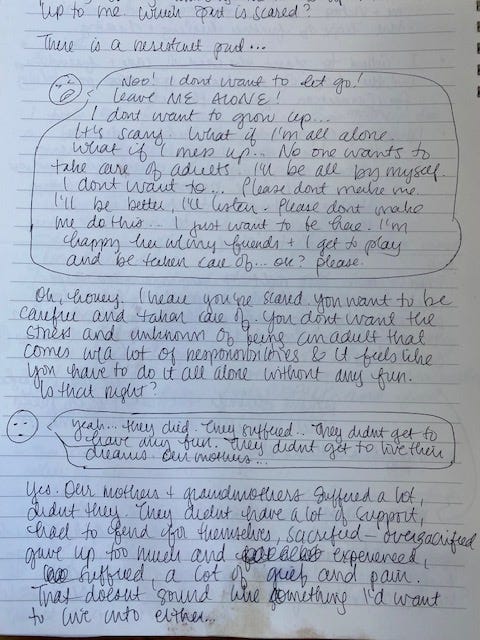

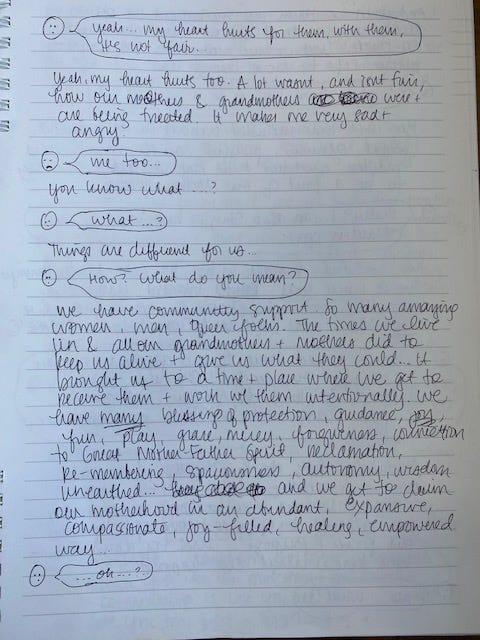
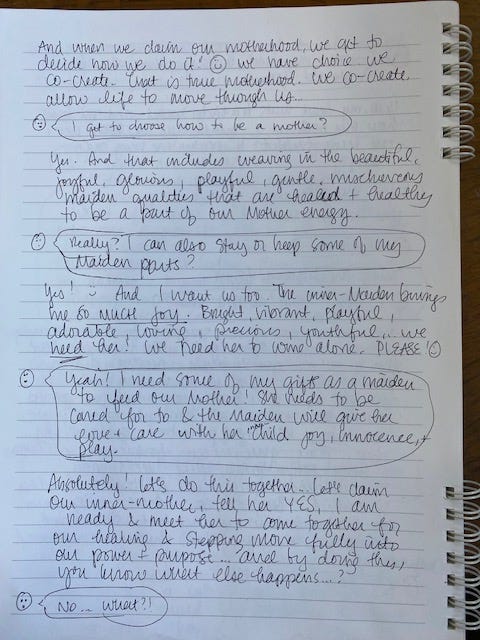
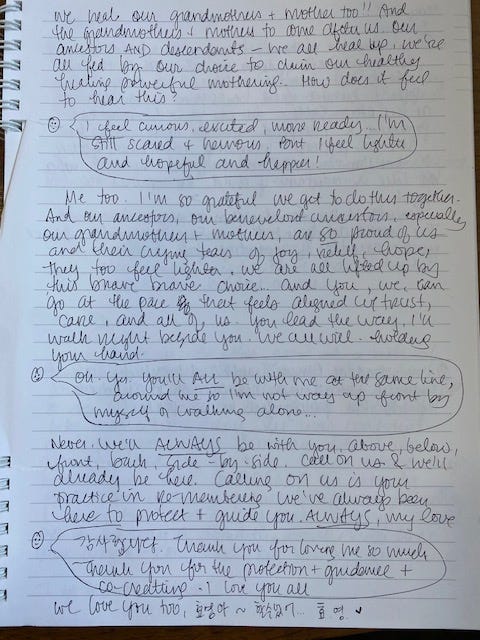
COMMUNITY DREAMWORK WITH YOUR PARTS! Or on the bus! 😀 love this so much!